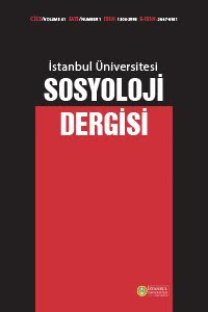Türkiye'de kent araştırmalarının değişimi
Bu çalışmada kent konusunda bugüne kadar yapılmış uygulamalı araştırmaların süreç içindeki değişimi ele alınmaktır. Cumhuriyet sonrasında özellikle büyük kentlerde ortaya çıkan gecekondu bölgeleri kent hakkında çalışanların dikkatlerini çeken ilk konu olmuştur. 1950'lilerden itibaren başlayan uygulamalı çalışmalar içinde gecekondu çalışmaları, gecekondunun tanımlanması, gecekondulu nüfusun yapısı, aile tipolojisi, az gelişme ve kentleşme, nüfusun kentle bütünleşmesi, sanayi ve işgücü ilişkisi, gecekonduda yaşayan nüflısun kente ilişkin tutumları gibi temaları içermektedir. 1990'lı yıllarda önce gecekonduların ticarileşmesi, ardından da "varoş" meselesi ele alınır. Giderek araştırmacıların ilgisi, yoksulluk, çöküntü ve soylulaştırma konularına kayar. Bu süreçte, ilgi çeken konulardan bir başkası küresel kent tartışmaları çerçevesinde İstanbul/İstanbulluluk ve yeni zengin yaşama alanları olan siteler olmuştur. Sonuç olarak, "gecekondu" sorunu ile başlayan uygulamalı kent araştırmalarının bugün iç içe geçmiş bir çeşitlilik içinde olduğunu söyleyebiliriz. Bu durumu toplumsal süreçlerdeki çeşitlenmenin bir yansıması olarak değerlendirmek gerekmektedir.
Changes in urban researches in Turkey
This paper exemines the changes of the context of emprical studies in the area of urban sociology in Turkey. The 'gecekondu' areas emerged in metropolitan areas, in the Republican period, became the first subject matter of scholars interested in this topic. The emprical studies started in 1950's included themes such as, 'gecekondu' studies, definition of 'gecekondu', demographical structure of 'gecekondu', typology of families, underdevelopment and urbanisation, integration to urban areas, relationship of the industry and the labor force and attitudes of 'gecekondu' residents regarding the city. In 1990's commercialization of 'gecekondu' and the problems of the 'varoş' ( slum areas) have came to agenda. Gradually, researchers' interest shifted to the issues of poverty, blight zone, and gentrification. Within the matters of global city framework, Istanbul and Istanbullites as well as emerging upper class living areas have been subjects of interest in this period. As a result, we can say that, emprical urban studies beginning with the problem of 'gecekondu' settlements are now much more diversified. This issue shall be evaluated as a reflection of differentiations in social processes in urban space.
___
- ISSN: 1304-2998
- Başlangıç: 2020
- Yayıncı: İstanbul Üniv. Edebiyat Fak. Sosyoloji Böl.
Sayıdaki Diğer Makaleler
Dünya ve batı edebiyatı karşısında kutadgu-bilig*
Türkiye'de girit çalışmaları üzerine bir deneme
Şeffaflaşma aracı olarak bilgi edinme ve araştırma hakkı*
Almanya'da kültürel çatışma alanı olarak "Türkçe"
Yenilemeye karşı sıhhileştirme: Fener-balat-ayvansaray'da kentsel müdahalelere yaklaşımlar
Şehir, tarih, sosyoloji: Korkut Tuna'nın şehir yaklaşımı
Chicago okulu: Chicago'ya özgü bir perspektif
Ayvalık şehrinin nüfus özellikleri
